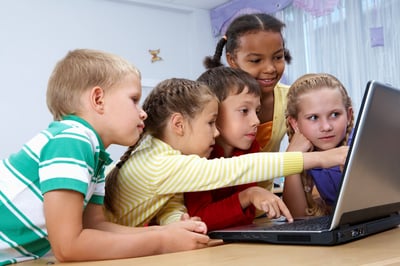A Basic Guide to CIPA Compliance
 Like most modern technologies, the Internet is a double-edged sword. It is a powerful tool for educators, mentors, and parents to leverage in educating children, literally putting the world and all of history in their hands. Kids can learn about ancient civilizations, cutting-edge space exploration, world geography, chemistry, and so much more. Yet they can also get their hands on things children should never see, and give the very predators we are trying to protect them from direct access to our precious young ones. CIPA is just one way in which the government is trying to keep children safe on the Internet.
Like most modern technologies, the Internet is a double-edged sword. It is a powerful tool for educators, mentors, and parents to leverage in educating children, literally putting the world and all of history in their hands. Kids can learn about ancient civilizations, cutting-edge space exploration, world geography, chemistry, and so much more. Yet they can also get their hands on things children should never see, and give the very predators we are trying to protect them from direct access to our precious young ones. CIPA is just one way in which the government is trying to keep children safe on the Internet.
The History of CIPA
CIPA applies only to schools, libraries, and other institutions that receive discounted Internet services or participate in the E-rate discount Internet program. It came into being in 2000 when Congress passed CIPA (Children's Internet Protection Act). In 2001, the FCC implemented the rules to support CIPA, and it was updated again in 2011 to address new technological developments. It works in conjunction with Children in the 21st Century Act.
The Basic Requirements of CIPA
Basically, CIPA stipulates that schools, libraries, and other institutions receiving discounted Internet service for the purpose of educating children adhere to the following policies:
-
They must have an Internet safety and networking security policy addressing minor children.
-
The policy has to include technical protection measures, including blocking and/or filtering of pictures that could be harmful to minors.
-
Blocked and/or filtered photos include child pornography and any material that could be considered obscene.
-
Children must be monitored while online.
-
Minors who use the Internet at the institution must be educated on appropriate online behavior.
-
Appropriate online behavior includes the safe use of social networking sites, chat rooms, email, etc.
-
Minors who use the Internet at these institutions must be educated on the hazards of hacking activities, cyber-bullying, and other online dangers.
-
Before enacting such a policy, the institution has to hold at least one public meeting on the policy, and they must give the public adequate notice of this meeting.
CIPA is Just Part of an Overall Strategy to Keep Children Safe
With the right technology, you can make sure the kids are safe even when there isn't an adult sitting next to them. Monitoring tools and filtering tools help keep the kids out of the bad places, while networking security tools keep the bad guys away from the kids.While education is a good start in keeping minor children safe online at school, in the local library, and in other community and educational programs, in today's environment it just isn't enough. Even adults have trouble distinguishing between safe and unsafe Internet activities sometimes. Plus, even if the kids are doing everything they are supposed to do, it's way too easy for hackers to break in and start trouble anyway. That's why networking security is such an important issue.
Are you sure you're doing all you can do to keep kids safe in your online environment? Visit today to request a quote for the affordable networking security solutions you need.





